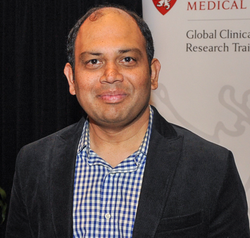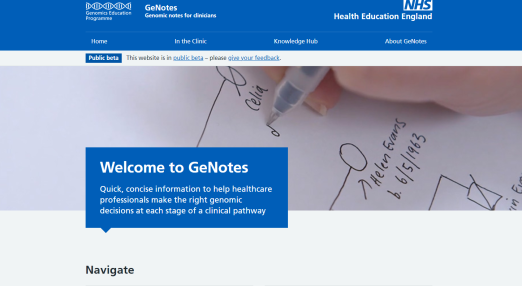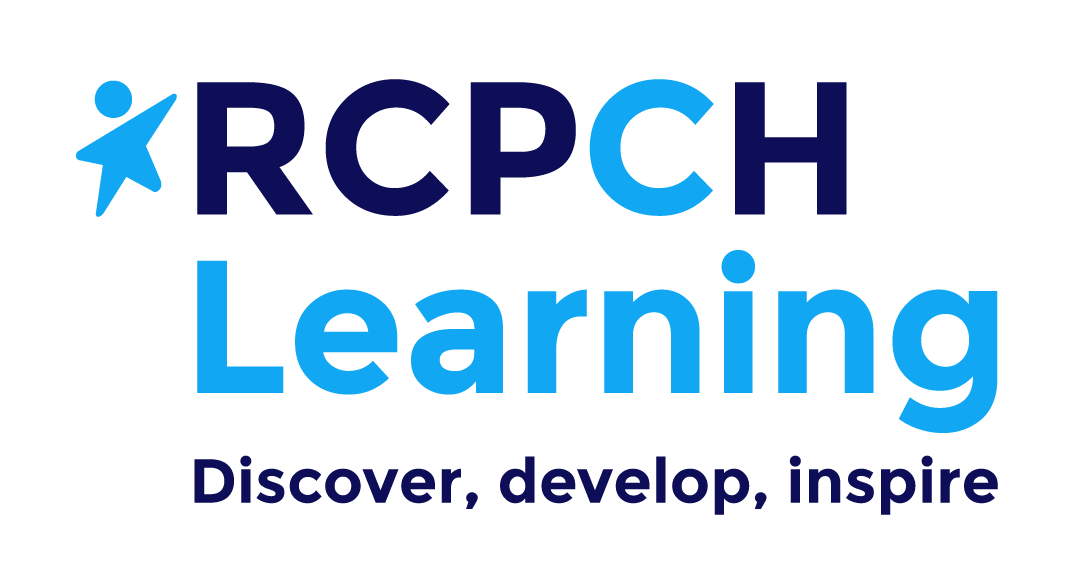Length
11 hours in total
Target Audiences
- Aimed at paediatric trainees who have existing experience in research and wish to develop their research knowledge and understanding.
Self paced
Work through the module at your own pace. When you have completed the module, you can return at any time to re-review any of the sections.
Free
Log in with your account
About this course
Overview
The Academics Trainees Day is an online event that took place in October 2024. The day featured talks and workshops on three areas: research skills, research opportunities and wider research applications.
This page has been provided as a platform for viewers to access workshops and plenaries from the day, designed to deepen understanding of research and its practical application in paediatrics.
How to use this page
You will find the course content below. This Academic Trainees Day page has 9 steps:
1-8. Event recordings
9. Post-course evaluation form
Once you have completed each section, click the ‘Mark complete‘ button.
Next, complete and submit the post-course evaluation form, and click the ‘Mark complete‘ button.
Once all steps have been completed, a downloadable certificate of completion will be issued on the page.
If you have any questions, please contact the RCPCH Learning team.
Morning plenary talk – A journey to research
Dr Erva Nur
Duration: 30 minutes
Summary: This talk will explore Erva’s journey as an IMG paediatric trainee, experiences with vulnerable populations and engagement in paediatric training and public health research. It will focus on Erva’s passion for addressing health inequalities in child health and how her clinical background and global perspective drive her research goals to improve equitable healthcare outcomes for all children.
Morning plenary talk – Working flexibly and pursuing academic interest
Dr Sian Ludman, Dr Eva Wooding
Duration: 30 minutes
Summary: This talk explores how working less than full time (LTFT) can complement and even enhance an academic career. It offers practical advice for those balancing LTFT training with academic pursuits and provides valuable resources to support LTFT working and research at any stage.
NIHR Clinical Academic Training Pathway: For trainees without a PhD or ST1-4
Louise Hawkyard
Duration: 1 hour 12 minutes
Summary: This workshop focuses on the early stages of a research career and specialty training, highlighting the NIHR pre-doctoral clinical academic fellowship. It will cover the NIHR clinical academic pathway for trainees without a PhD and those in the early stages of training (ST1-4).
How to write and apply for grants, e.g. RfPB grants and PPIE
Professor Alastair Sutcliffe, Dr Faiza Afzal, Dr Chris Gale
Duration: 1 hour 30 minutes
Summary: This workshop delves into grantsmanship, sharing lessons from unsuccessful grants and emphasising the role of effective Patient and Public Involvement (PPI). Dr Afzal presents a current PPI project, while Professor Gale explores the RfPB grant niche.
Wider Applications of Paediatrics: exploring community child health research, digital health and AI machine learning
Dr Michelle Heys, Professor Paul Dimitri
Duration: 1 hour 30 minutes
Summary: This workshop explores the intersection of digital paediatrics and community paediatrics, showcasing project examples and discussing the challenges and benefits of artificial intelligence in these fields.
How to write papers and abstracts
Dr Becky Mitting
Duration: 1 hour 30 minutes
Summary: This workshop provides a comprehensive guide on writing and publishing a scientific journal article, covering various formats like case note reviews, systematic reviews, surveys, and case reports. It also offers tips on making your submission appealing to publishers, responding to peer reviews and navigating the publication process.
NIHR Clinical Academic Training Pathway: For trainees with a PhD or ST4+
Dr Steph Britt
Duration: 1 hour 20 minutes
Summary: This workshop is tailored for those with a PhD in the later stages of specialty training (ST3+). It focuses on clinical lectureships, advanced fellowships, and opportunities at the post-doctoral stage, outlining potential next steps in an academic career.
Engaging consultants in your research: finding an academic mentor, how to identify research worthy projects, tips on getting consultants to support your research
Professor Will Carroll, Professor Damian Roland, Professor Ram Ramnarayan
Duration: 1 hour 30 minutes
Summary: This workshop shares strategies for engaging consultants in your research, including finding an academic mentor, identifying research-worthy projects, and tips for gaining consultant support.
Afternoon plenary talk – PPIE: From Patient to Research
Rhys Inward
Duration: 20 minutes
Summary: Rhys shares his personal journey from patient to active involvement in Patient and Public Involvement and Engagement (PPIE). He discusses integrating PPIE into his research, highlighting the value of patient experiences in shaping studies and how it can foster a deeper understanding of what PPIE truly entails.
Afternoon plenary talk – Experience with conducting research
Dr T’ing Chang Kwok
Duration: 15 minutes
Summary: Dr T’ng Chang Kwok shares his experience in conducting research, focusing on leading the BPSU neonatal stroke surveillance study and the key lessons learned throughout the process.

Dr Sian Ludman
Paediatric Allergy Consultant, Royal Devon University Healthcare NHS Foundation Trust
Dr. Siân Ludman is a Consultant Paediatric Allergist at the Royal Devon and Exeter NHS Foundation Trust and one of the few British Allergists with European allergy accreditation. She has published widely on paediatric allergy, including cow’s milk allergy and food challenge outcomes, earning recognition at the European Academy of Allergy and Clinical Immunology conference.
Siân holds an MSc with distinction in Allergy from Imperial College London, specialising in oral allergy syndrome in children. She trained at prestigious London hospitals, including St Mary’s and St Thomas’s.
An Honorary Senior Clinical Lecturer at Exeter Medical School, Siân lectures on Allergy and Immunopathology while driving improvements in paediatric allergy training nationally through the RCPCH. She also champions less than full-time (LTFT) work as her trust’s LTFT and SuppoRRT lead and chairs the RCPCH LTFT committee.

Prof Alastair Sutcliffe
Clinician Scientist and Consultant Paediatrician, UCL and Great Ormond Street Institute of Child Health
Professor Sutcliffe has dedicated nearly 32 years to research at the Mother-Child interface and is recognised as a leading expert in the outcomes of assisted reproduction. His research has been supported by multiple prestigious funding bodies, including the NIH (Bethesda, USA), NIHR, HTA, MRC, and Wellcome Trust. Currently, his primary funding is from the NIH.
A passionate mentor, Professor Sutcliffe guides a team of five core staff alongside Masters and PhD students. His clinical PhD students have consistently won awards, with one now serving as his associate professor. He has published over 240 papers and holds an intellectual property portfolio that includes a novel treatment for preventing premature birth.
In recognition of his contributions to women's health, he was awarded the FRCOG and received a Beacon of Light Award from Rishi Sunak for his voluntary efforts.

Dr Eva Wooding
Paediatric Registrar, University Hospitals Plymouth
Eva is a less-than-full-time paediatric registrar at University Hospitals Plymouth and a GW4-Clinical Academic Track PhD fellow. Her research focuses on Aspergillus fumigatus in paediatric lungs, exploring fungal immunology and the impact of mould exposure on childhood asthma.
She is Co-chair of the RCPCH Trainee Research Network (TRN) and Chair of PenTRAIN, with experience as a sub-investigator for NIHR clinical trials. Holding a Master’s in Clinical Education, Eva lectures on evidence-based healthcare, advocating for junior-led research and building research skills in child health. She balances LTFT training with clinical practice, academic projects, and life administration.

Dr Erva Nur Cinar
Clinical Research Fellow, Evelina London Children’s Hospital
Erva studied medical school in Istanbul University, Turkey. Currently a paediatric trainee and doing an OOP year as a clinical research fellow in PID at Evelina London Children’s Hospital. She is deeply passionate about global child health research. She has been actively involved in international child health advocacy with organisations such as UNMGCY, WHO and ICHG. With a strong commitment to equal representation in academia, she is particularly keen to engage more IMGs in research-related activities.

Prof Padmanabhan Ramnarayan
Professor of Paediatric Critical Care, Imperial College London
Prof Padmanabhan Ramnarayan (Ram) is Professor of Paediatric Critical Care at Imperial College and Honorary Consultant at St Mary’s Hospital. He is Deputy Director of the Imperial Centre for Paediatrics, Lead for the NIHR Paediatric Critical Care Incubator, and Chair of the PCCS Study Group.
His research focuses on pragmatic trials in paediatric ventilation, critical care epidemiology, infection biomarkers, and AI in decision-making. He led the FIRST ABC RCTs, the largest trials in paediatric non-invasive respiratory support, and currently leads the BACHb trial in bronchiolitis. He has contributed to major trials like CATCH, Oxy-PICU, and PRESSURE.

Dr Faiza Afzal
Senior Research Fellow, UCL and Great Ormond Street Institute of Child Health
Faiza completed her Ph.D. in Bone Physiology at Imperial College London and her postdoctoral research in cell and molecular biology at the University of Massachusetts. Her second postdoc was in gene therapy of cardiovascular disease at Institute of Child Health. Her research interests in her current role include women’s reproductive health and birth outcomes. She has also carried out PPI studies for a number of projects. Furthermore, she has extensive experience in project management and has recently completed a Diploma in Clinical trial Management.

Prof Chris Gale
Professor of Neonatal Medicine, Imperial College London
Chris is a Professor of Neonatal Medicine and Consultant Neonatologist; his research focuses on large scale neonatal randomised trials and observational research using routinely recorded clinical data. He is Chair of the London Panel for the NIHR Research for Patient Benefit funding programme.

Prof Damian Roland
Head of Service, Children’s Emergency Department, Leicester Royal Infirmary
Professor Damian Roland is an experienced Paediatric Emergency Medicine clinician who is passionate about improving the care of the ill and injured child.
He has internationally recognised expertise in the creation and evaluation of interventions (including education) to improve the differentiation of well from deteriorating children in emergency and acute care settings. Previously he has developed the Paediatric Observation Priority Score (POPS), now available as an app. He is currently clinical lead for the NHS England National Paediatric Early Warning System.
He has a strong interest in Social Media as a means of Knowledge Translation using the twitter account @damian_roland and blog http://rolobotrambles.com.

Dr T’ng Chang Kwok
Action Medical Research Training Fellow and ST7 Neonatal Grid Trainee, University of Nottingham
Dr Kwok is a neonatal subspecialty clinical doctor in the East Midlands with a strong passion for neonatal academia. He is also an Action Medical Research training fellow who is exploring approaches to incorporate machine learning into routinely recorded national neonatal electronic patient records to support clinical decision making for high-risk preterm infants. He has also received the 2019 Sir Peter Tizard bursary from the British Paediatric Surveillance Unit to run a neonatal stroke surveillance study.

Rhys Inward
PPIE Expert and DPhil Student, University of Oxford
Rhys has extensive experience in curating Patient and Public Involvement and Engagement (PPIE) strategies. He has served on several PPIE boards for a variety of charities, organizations, and academic institutions. His journey with PPIE began as a patient, having experienced a childhood neurological condition. Drawing from this, Rhys has used his perspective to contribute to committees that guide research. He currently supports organizations and PhD students in designing and refining their PPIE strategies and integrates PPIE into his own academic research. Rhys is also pursuing a DPhil in Epidemiology at the University of Oxford.

Louise Hawkyard
NIHR Senior Programme Manager - Integrated Academic Training Programme
As of 1st September 2016 the Revalidation and CPD team of the Royal College of Paediatrics and Child Health no longer allocates a number CPD credits to courses or events. The removal of credits associated with events allows delegates to record the educational benefit of the activity through written reflection, in contrast to quantifying the significance based on the time duration of the course. This is in accordance with changes made to the CPD Scheme guidelines published in April 2016.
Detailed information and scheme guidance can be found on the RCPCH website
When recording the activity, delegates should focus on the reflection and detail the following:
- What did you learn?
- What effect has/will the learning had/have on your current practice?
- What further learning or action, if any, is needed as a result of the original learning activity?
Should you have any questions regarding the removal of credits, please feel free to contact the CPD team
If you use the RCPCH CPD Diary, you can click here to visit the diary and record your learning: Log your learning on the RCPCH CPD Diary
Related resources
-

RCPCH Webinar: Paediatric GeNotes: Facilitating genomics mainstreaming for paediatric clinicians
In this webinar, Professor Kate Tatton-Brown and Dr Eleanor Hay present the exciting new GeNotes online platform, which launches this May 2023. GeNotes is designed to support clinicians in gaining confidence and competence in genomic practice.

Whole genome sequencing: developments and future perspectives
On 20 January 2023 we hosted a webinar discussion with Genomics England to hear the most recent updates and the future perspectives in paediatric genomics. You can watch the recording and read our speakers' responses to questions posed by delegates during the event.
Found an issue? Please get in touch with us:
Email us at rcpchlearning@rcpch.ac.uk
